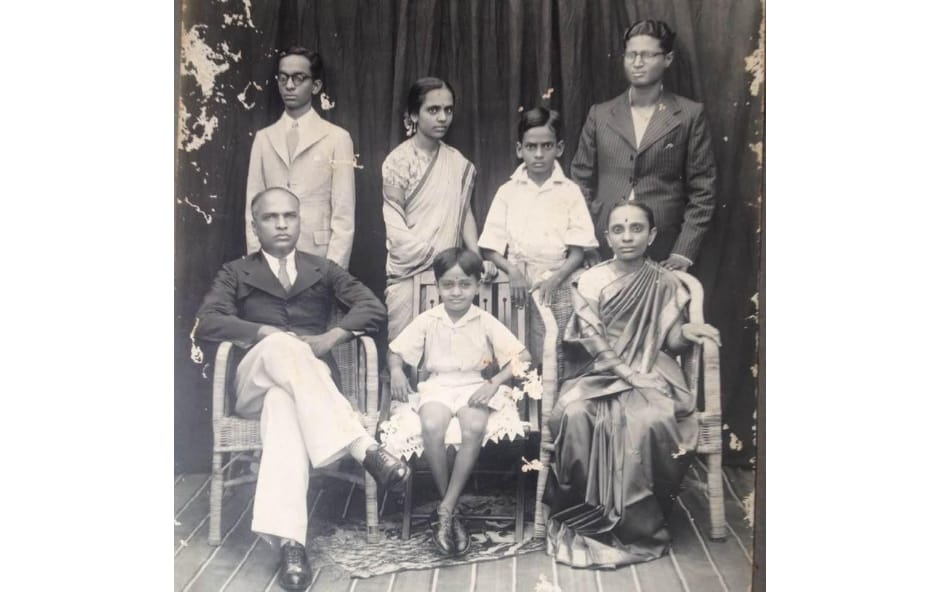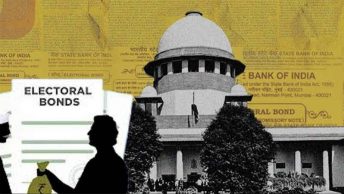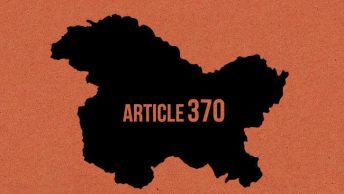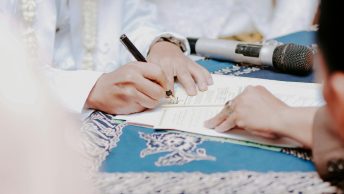Standing from left to right are Justice O. Chinnappa Reddy, Dr. O. S. G. Sundaramma (sister), Mr. Swaminatha Reddy (brother), Mr. Julian Reddy (first cousin). Seated from left to right are Mr. O. Souri Reddy (Justice Chinnappa Reddy’s father and government pleader, Sub-Court, Gooty, Anantapur district), Mr. Prakasam (brother), and Mrs. Parvathamma (Justice Reddy’s mother). Photo provided by: Nirmala Reddy (late Justice Reddy’s daughter).
On the 13th of October 2022 a Supreme Court bench issued a split verdict regarding restrictions on wearing the hijab in schools in Karnataka. Justice Sudhanshu Dhulia in his ruling, cited an old Supreme Court judgment from 1986 – Bijoe Emmanuel vs State of Kerala and wrote, “It is ultimately a matter of choice. Nothing more, nothing less. I have also held the ratio laid down by the Supreme Court in the case of Bijoe Emmanuel squarely covers the issue.”
The Bijoe Emmanuel judgment is a fascinating read from another time. Authored by Justice O. Chinnappa Reddy it dealt with the issue of three young children belonging to the Jehovah’s Witnesses sect who were expelled from school because they refused to sing “Jana Gana Mana…,” on the grounds that the tenets of their faith did not permit praise of anyone other than their God. Justice Chinnappa Reddy in a remarkably lucid judgement held that, “The expulsion of the three children from the school for the reason that because of their conscientiously held religious faith, they do not join in the singing of the National Anthem in the morning assembly though they do stand respectfully when the National Anthem is sung, is a violation of the fundamental right to freedom of conscience, and to freely profess, practice and propagate religion.”
Justice Chinnappa Reddy- the author of this judgment, a remarkable legal scholar and most interestingly, a committed atheist and secular humanist spent his life defending freedom of conscience. With the passage of time, the number of people alive who still remember his contribution to jurisprudence, and defense of civil liberties diminishes each year, and he is now a largely forgotten figure, remembered only in rarefied legal circles.
The Justice Chinnappa Reddy that I knew was a family man, retired and living in Hyderabad but just as sharp and erudite as he was when in the Supreme Court. The eldest of four children, born into a family in small-town Rayalaseema he was a self-made man who began his career in Madras, before becoming a judge in the Andhra Pradesh High Court in 1967, then serving in the Punjab and Haryana High Court before finally retiring from the Supreme Court in 1987. My earliest childhood memories were of a kindly, old man sitting with his wife, Soma Sundaramma on a swing in their courtyard, while all his grand nieces and nephews gathered around him. His wife would tell all the children that they would play a game- and then gently coax him into talking about his old cases. Justice Reddy would then explain complex cases that covered all kinds of issues- from murders to matters of environmental protection to ten-year-olds, in simple, chaste Telugu. A master storyteller and wordsmith, he managed to make the dullest subject fascinating to a child. Once he told narrated the story, the children were asked to guess what the ruling would be. He would never tell us how he had ruled, instead asking us to rule instead. As children’s games go, this game was more fascinating than any treasure hunt, murder mystery, or Hide-and-Seek, and we loved solving his legal riddles.
He treated everyone who visited him- high profile lawyers, politicians, students, poor defendants, children with the same degree of dignity, affection, and sensitivity. His courtyard was always full of dozens of poor, impoverished and rural litigants in search of justice, who would spend nights camping outside his house while he drafted their petitions.
As he got older, Justice Reddy’s vision gradually disintegrated from macular degeneration. Despite losing his eyesight he insisted on keeping track of current affairs and legal developments decades after he had retired), and had people read out the news and judgements to him. Despite his loss of vision, he remained remarkably astute and would remember obscure minutiae such as page numbers and citations of articles he wanted read out, and family members took turns reading to him.
On one visit, I volunteered to read to him. I was given a short, dry legal article- maybe 6-8 pages which repeatedly used one word- ‘puisne.’ I had never heard the word ever before in my life, and unfortunately it appeared some 5-6 times in this article. Struggling to figure out how it might be pronounced I tried out various combinations- pew-SINE; pew-SUN, Pui-S-ine and so on, mangling the word very badly each time. Each time I encountered it, I paused waiting for him to tell me how to pronounce it or to infer it from context, but he remained inscrutable and didn’t say a word.
Finally, after the end of the article, I sheepishly turned to him and said, ‘I have no idea what this word is?’ He could barely keep a straight face and burst out laughing and said, “Don’t worry. Nobody really uses this anymore. It’s pronounced puny- just like me.” A short, slightly built man and also a puisne justice (in law, puisine refers to an Associate Justice), his pun- on him being puny, and puisne made us all laugh.
Chinnappa Reddy was a sixth generation Christian by birth, his paternal family being early adopters of Catholicism in Rayalaseema, but became a strident atheist, socialist and humanist. An idealist, shaped by the winds of change in newly independent India, he believed firmly in the unfettered right to freedom of religion, and civil liberties, Abhinav Chandrachud, the legal scholar suggests in his book that one of the reasons for Justice Reddy’s elevation to the Supreme Court was for the purposes of ensuring Christian representation in the Court. Similar suggestions were put to him by George Gadbois, with whom he corresponded. Justice Reddy wrote a handwritten six-page letter in response to Gadbois’ queries, unambiguously stating that he had no faith in God, and was not Christian, nor did his atheism, or avowed Marxism in any way influence his judgments, or jurisprudence.
In his old age, he revisited his judgments often, including Bijoe Emmanuel. The suffering of the young children denied an education because of their conscientious objection, and the perversity of a system that could endorse such cruelty haunted him deeply. It remained the one judgment he was most proud of, and he believed it would stand the test of time.
Justice Reddy’s grasp of literature – in English and Telugu was tremendous. He had read everything and would talk about how in his youth he used to adore the Telugu poet, Devulapally Krishna Shastri, and would rush from court to attend Krishna Shastri’s poetry readings when he heard about them in the newspaper.
Justice Reddy was a product of his time but broke from convention in his beliefs and ideology. In his old age, he kept himself busy reading and writing legal books, but his true love was always literature- of all sorts. Well after his blindness had struck- he spoke of how he had always wanted to translate the Importance of Being Earnest into the Telugu. I asked him once why he hadn’t. He said, “I tried and tried but I couldn’t figure out a way to capture Wilde’s wit; and stopped when I realized you simply couldn’t create a Bunbury in Telugu. Nobody would get the humor.” This was a reference to a fictional character in Oscar Wilde called Bunbury- an imaginary, invalid old relative, who was frequently invoked to get out of boring, tricky situations. To him, it wasn’t just Wilde’s wit. He believed that there was also an underlying humanism and sensitivity in Wilde’s humor that was untranslatable into Telugu.
He did remember however, that I had laughed at the idea of how to create an Indian Bunbury. The next time he met me- several months later, he leaned conspiratorially towards me with what I thought was a twinkle in his blind eye and said something to the effect of ‘You know- with my health, I can be an actual Bunbury.’
Justice Reddy passed away in 2013. He would have turned one hundred this month. He lives on in judgements like Bijoe Emmanuel. Ars longa, vita brevis.
(Adhiraj Parthasarathy is a Hyderabad-based writer and grandson of the late Justice Onteddu Chinnappa Reddy’s sister. Views expressed are personal)








[…] Posted byAdhiraj Parthasarathy […]
how beautifully written. justice O. Chinnappa Reddy has always been my inspiration. that puisne incident had my laughing and smiling in admiration. may his soul rest in peace.